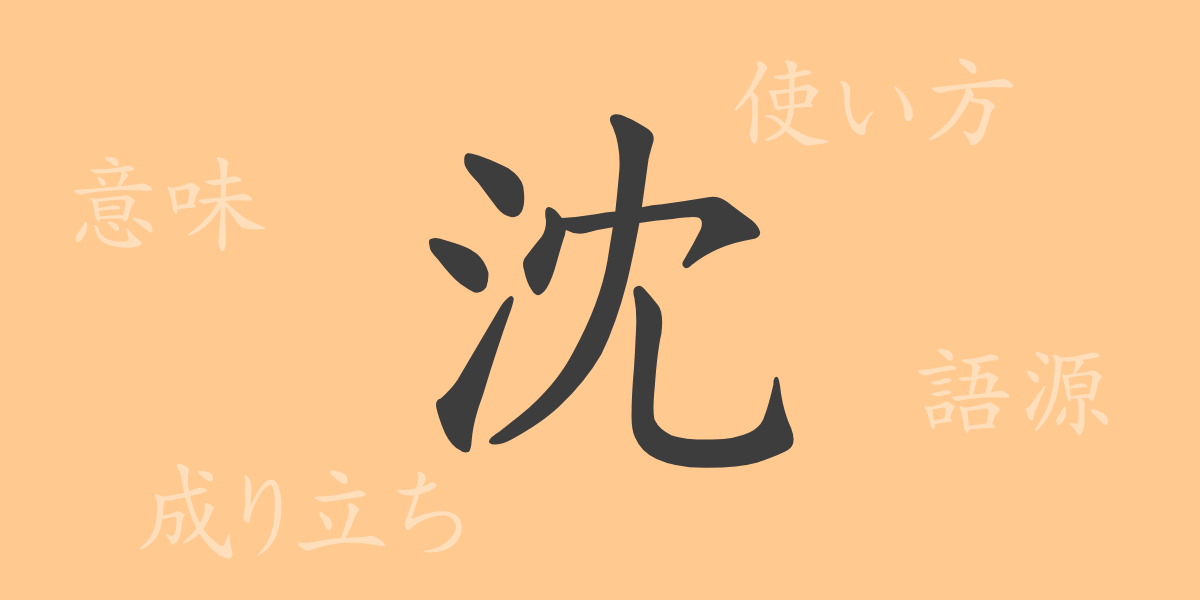The beauty of the Japanese language is evident in its complex character system. Each kanji has its history and plays a unique role. This article focuses on the kanji ‘沈(チン)’, a commonly used character in Japan, exploring its rich origins, usage, pronunciation, and its role in idioms and proverbs.
Origins of ‘沈(チン)’
The kanji ‘沈’ symbolically represents the action of something sinking in water. It originated in ancient China to depict objects sinking below the water surface. The character combines ‘氵(さんずい)’, a radical indicating water, with ‘冗’, leading to the formation of ‘沈’. This combination visually conveys the image of something quietly sinking to the bottom.
Meaning and Usage of ‘沈(チン)’
‘沈’ carries meanings such as ‘to sink’, ‘to submerge’, and ‘to calm down’. It can also metaphorically describe feelings, as in ‘心が沈む(こころがしずむ)’, indicating a sense of being downhearted. This kanji is used to describe both the physical act of something moving downwards and emotional states.
Reading, Stroke Count, and Radical of ‘沈(チン)’
Understanding the form and meaning of ‘沈’ enhances its utility in understanding Japanese.
- Readings: On’yomi ‘チン’, Kun’yomi ‘しず.む’, ‘しず.める’
- Stroke Count: 7 strokes
- Radical: ‘氵’ (さんずい), the water radical
Phrases and Idioms Using ‘沈(チン)’ and Their Meanings
The kanji ‘沈’ appears in many idioms and proverbs, reflecting its versatility in the Japanese language:
- 沈黙(ちんもく): Silence, or the state of being silent.
- 沈思黙考(ちんしもっこう): Deep in thought.
- 沈着冷静(ちんちゃくれいせい): Calm and composed.
- 沈魚落雁(ちんぎょらくがん): Describing a beauty so profound that fish sink and geese fall from the sky, used to praise a woman’s beauty.
- 沈床(ちんしょう): Literally means sinking to the bed; figuratively used to describe being bedridden due to illness.
Conclusion on ‘沈(チン)’
The kanji ‘沈’ illustrates the richness of Japanese expression, from depicting physical sinking to expressing emotional states. This exploration has highlighted the various facets of ‘沈’, reflecting the depth and diversity of the Japanese language.

























